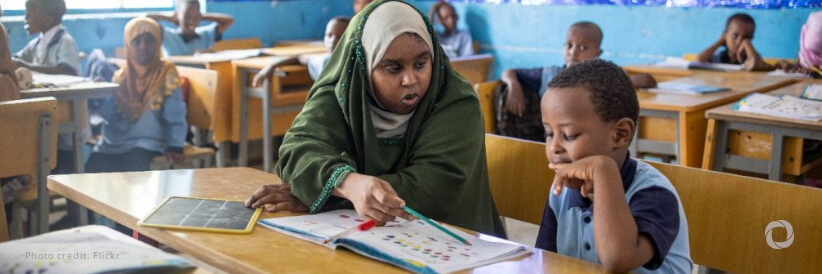The World Bank has approved $11.35 million to help Djibouti improve its education system and advance learning opportunities for its population.
The additional financing for the Expanding Opportunities for Learning Project aims to increase access to basic education and enhance teaching practices. The project seeks to lay the foundation for quality preschool education, expand access to and retention in primary and lower secondary education, strengthen teaching and learning systems, and reinforce the management and data capacities of the Ministry of National Education and Vocational Training.
This initiative will benefit students in pre-primary, primary, and lower secondary schools, particularly those from vulnerable groups such as refugees, rural communities, girls, and children with special needs. It will also support families and key education stakeholders, including teachers, school leaders, pedagogical advisors, inspectors, and teacher trainers.
“COVID-19 severely disrupted Djibouti’s education system, and concerns remain about equitable access and the quality of education,” said Fatou Fall, Joint Resident Representative of the World Bank Group for Djibouti. “This additional financing will help increase equitable access to preschool and basic education, while also enhancing the quality of learning for each child in the classroom.”
Gender disparities persist in Djibouti’s education system, with 71 percent of girls completing primary school compared to 80 percent of boys. Transition rates to lower secondary also reflect inequality—90 percent for girls versus 98 percent for boys. The learning environment is further constrained by gaps in infrastructure and access: just 7.6 percent of students report having reading books at home, with that figure falling to 1.9 percent in remote areas. Refugee children face additional barriers, often depending on under-resourced schools.
The new financing will build on lessons learned and scale up successful innovations from earlier phases of the Expanding Opportunities for Learning Project, deepening education reform efforts, and addressing ongoing sectoral challenges. It will play a key role in supporting the government’s Schéma directeur de l’éducation et de la formation (2021–2035).
This operation is financed by $11.35 million, which includes a $6.5 million grant from the International Development Association (IDA) and a $4.85 million grant from the Global Partnership for Education (GPE). The total project financing now stands at $41.7 million.

